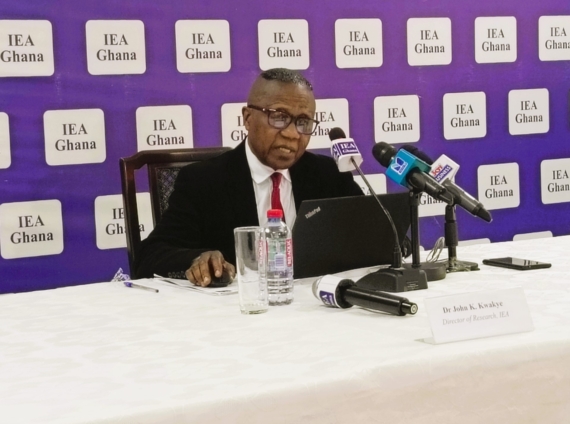Economy is growing below potential – IEA
The Institute of Economic Affairs (IES) has alluded that Ghana’s economy is generally growing below its potential due to several factors.
This includes low public investments, macroeconomic instability and the high cost of doing business.
In its latest bi-monthly Economic Outlook, the IEA said achieving higher growth will require, in particular, leveraging the country’s huge natural resource wealth to increase investments in physical and human capital, lowering the cost of doing business and sustaining macroeconomic stability.
Data published by the Ghana Statistical Service (GSS) showed that economic growth was generally on the upward trend between the second quarter of 2023 and the second quarter of 2024, with year-on-year Gross Domestic Product growth increasing from 2.5% to 6.9%.
Non-oil GDP growth followed a similar trend as overall GDP growth during the period, increasing from 3.1% to 7.0%.
In terms of sectoral growth, agriculture showed a fairly steady positive growth throughout the period, ranging between 4.3-5.4%.
The services also grew by positive rates, ranging from 3.2-6.0%.
Industry, on the other hand, recorded erratic growth, with negative rates in quarter 2, 2023 and quarter 3, 2023 and positive rates in quarter 4 2023; quarter 1, 2024 and quarter 2, 2024, ranging between 1.6-9.3%.
The erratic growth of industry, the IEA said reflected irregular quarterly oil outputs during the period.
The International Monetary Fund (IMF) recently revised its growth projection for Ghana from 3.1% to 4.0%.
This indicated an expected stronger recovery from the effects of Covid-19 and the general economic crisis that has plagued Ghana in the past four years or so.



